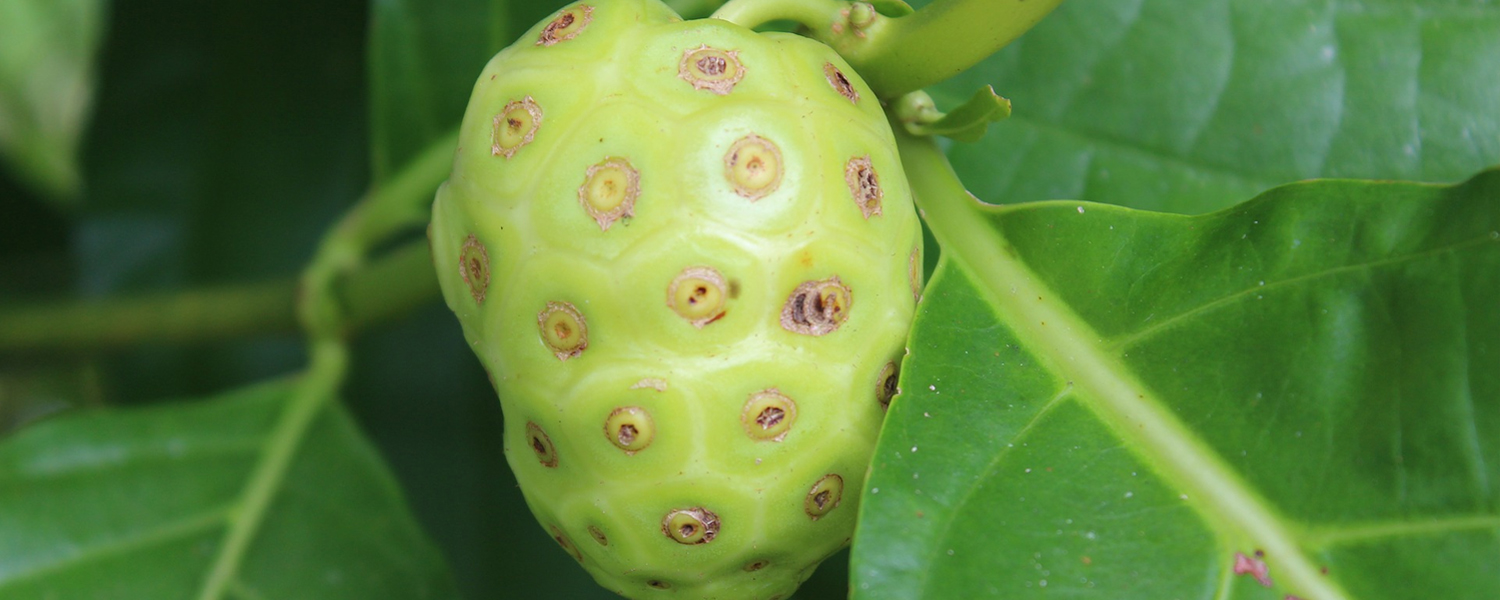
The noni fruit of the Indian mulberry is a fruit that grows in the Asian and the Australian regions. It has many amazing health benefits and is known to be the cure to some major diseases such as cancer. It is consumed in many forms such as raw, as juices, cooked with vegetables etc. Its bark is used as a cloth dye and its stems and leaves are used as firewood and cattle fodder respectively. The fruit has a lot of dietary fiber and carbohydrates in it if taken in powdered forms. The fruit is consumed sometimes as supplements in the form of capsules. The other ingredients present in the fruit are vitamin C, iron, calcium, Vitamin B, vitamin A and potassium. They have been used as a major medicinal source in the Polynesian culture, Chinese culture and Indian culture ever since ancient times. They are a part of various cuisines and even the seeds are roasted and consumed. It is a very tolerant plant and can withstand harsh conditions like drought and winters. It can grow anywhere even in volcanic soil, limestone outcrops and coral atolls.
Even after having such wide range of benefits and such flexible growing habitats, the noni fruit is not that widely known. The reason behind this are discussed in detail below.
Strong smell

The Noni fruit and the plant has a very pungent smell. People can smell the Noni tree from afar in the forests where they grow. This is the reason behind calling it the vomit fruit or the cheese fruit. When the fruit is green in color and is not completely ripe, it looks and smells normal. But as soon as the fruit starts ripening, the color changes to yellowish brown and it starts oozing. With that it also gives out a very pungent smell that is sometimes unbearable. Even when cooked, the smell gets worse. Nobody likes eating fruits that smell bad. Even while making noni juice, the fruit has to be fermented for about three weeks to a couple of months and the process has a very bad smell.
Bad Taste
Not only does the noni fruit smell bad, it also tastes bad. In humans, the sense of smell and taste are linked. So, whatever smells bad automatically has a bad taste. The noni fruit is too tough to be consumed raw. In many cultures and cuisines, the fruit is either consumed as juice mixed with other fruit juices, or cooked with other leaves and vegetables. Sometimes the fruit is consumed raw. The raw fruit has a better taste and is less smelly. In ancient times the fruit was known to be a famine fruit. It was only consumed when there was an absolute necessity and nothing was available for the people to eat. It’s bad taste usually overpowers the health benefits and repels the people from consuming it widely. Hence this is another reason for it not being as famous as other fruits.

Tough to find
Although the noni fruit is very easy to grow and is extensively found in many areas, its smell is repellent. This does not make it worth growing in a huge area. So, its growth has stayed confined to its native region like Asia and Australia. Since the plant in itself has a very pungent odor that spreads across a wide area, it can not be grown extensively outside the forest. People tend to cut the tree or stop it from growing. Although many supplements and juices made from the noni fruit are easily available, people avoid it because of the bad taste and pungent odors. It is easier to treat the disease with medicines other than noni fruit. This is yet another reason for noni fruit to be not well known.
Not widely popular
Because of its smell and taste the fruit is not liked by many people. Since the people are repelled by it, it has not been publicized much. Moreover, there has not been a lot of research done on this fruit and the full information about its properties is not exactly known. Although it is used in a huge number of cosmetic products, its natural use is not extensive. Lack of publicity is another reason for the noni fruit being not widely known.
